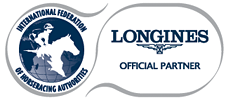IFHA Guidance on Antimicrobial Drug Use and Resistance
- The IFHA recognises that the judicious use of antimicrobial drugs (AMDs) is an effective tool for the treatment and control of conditions and diseases in horses caused by bacteria and certain other microorganisms, supporting positive horse welfare outcomes.
- Antimicrobial Resistance (AMR) occurs when an AMD that was previously effective is no longer effective to treat an infection or disease caused by a microorganism. The term AMR refers more specifically to resistance of bacteria to AMDs.
- Reducing the use of AMDs will reduce the level of AMR in human and animal health. AMR is a "One Health" issue which impacts human health, animal health and the environment. Veterinarians play a critical role in preserving the efficacy of AMDs.
- Resistance development can be reduced by the responsible use of AMDs, but also through good hygiene and active disease control, including vaccination where appropriate.
- The IFHA aims to raise awareness of the critical issue of AMR by encouraging the prudent use and careful selection of AMDs by veterinarians for the treatment of horses, and that end users such as owners and trainers are aware of the importance of the appropriate use of AMDs.
- The IFHA acknowledges that AMD usage varies between countries and regions, dictated by the availability of AMDs according to what AMDs are licensed for use as human and veterinary medicines by local drug regulatory authorities and control of use provisions according to local legislation and government regulation.
- The IFHA is aware that in many countries and/or regions, local veterinary professional associations, expert medical and veterinary groups and government agencies have or are in the process of developing AMD stewardship (AMS) guidelines for the treatment of horses. These guidelines are designed for local veterinary practitioners and end users such as owners and trainers, and take into account the AMDs that are available in the respective jurisdictions, and local government regulation.
- In most jurisdictions, AMDs are not openly sold, but are administered or prescribed/dispensed by veterinarians based on a legitimate veterinarian/client relationship.
- In treating horses with AMDs, veterinarians should exercise robust clinical judgement and aim to optimise therapeutic efficacy and minimise the potential for the development of AMR. Critically important AMDs for humans should be identified and reserved by the competent authority of the respective countries/regions and should only be administered to horses by veterinarians as a last resort to treat life-threatening conditions.
- Racing Authorities should aim to collate and make available resources that are published by their local veterinary professional associations, expert veterinary groups and government agencies regarding the responsible and judicious use of AMDs in horses.
- In order to have greater oversight of the responsible use of AMDs in their jurisdictions, Racing Authorities might also consider the implementation of:
- Compulsory continuing education (CE) of licensed trainers on medication matters, including the responsible and ethical use of AMDs in racehorses and the regulatory framework for the control of use AMDs in the jurisdiction.
- A licensing scheme for veterinarians treating racehorses, whereby any veterinarian who treats racehorses must be licensed or approved by the Racing Authority. Associated with a licensing scheme for treating veterinarians would be the requirement for ongoing continuing professional development (CPD) on a range of matters, including the responsible use of AMDs in racehorses.
- To facilitate the CE and CPD outlined above, Racing Authorities might elect to produce their own policy guidelines for the responsible supply and use of AMDs in their jurisdiction. Any guidelines should take into account the local regulatory environment, as well as reinforce the importance of recognising critically important AMDs that should not be used as first-line AMDs in managing routine, non-life-threatening conditions.
- The World Health Organization (WHO) and World Organisation for Animal Health (WOAH) have both produced an extensive range of resources on AMR that can also be used by Racing Authorities to develop their own policies on responsible AMD use:
End document.



